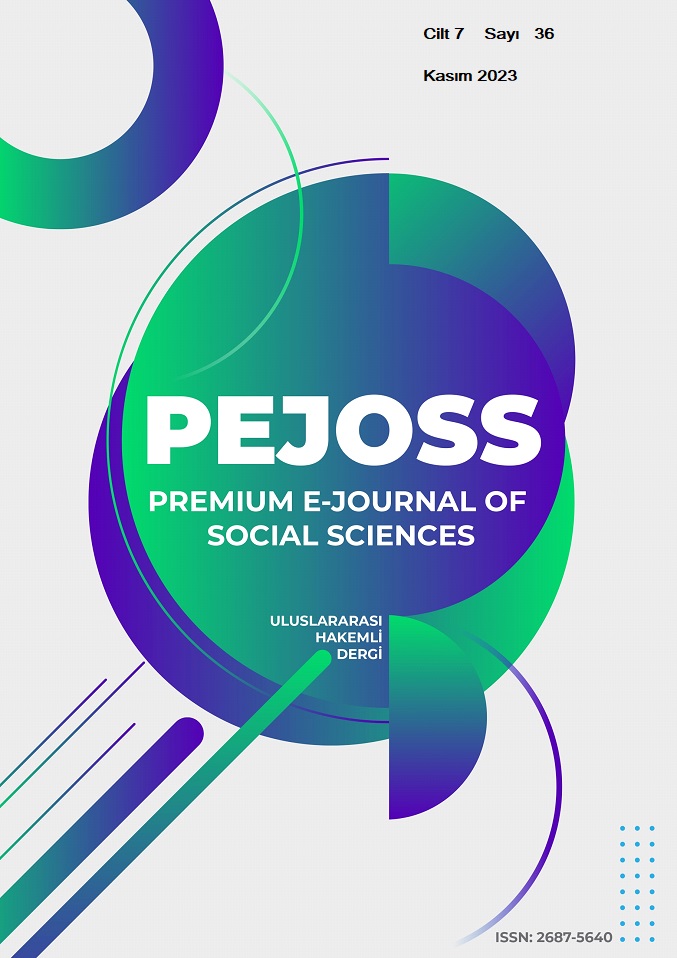Critical Approach To The Comments Of The Quran By Islamic Historianists
DOI:
https://doi.org/10.5281/zenodo.10258140Keywords:
Quran, Provision, Modernism, Hermeneutics, HistoricityAbstract
In this study, we will try to convey the falseness of the claims of Islamic historicists who claim that some provisions in the Quran belong to history, have been experienced in history, and cannot be implemented in later periods. Historicity and Historicism emerged entirely as a natural result and influence of the modern period and secularism. When we pay attention, the underlying truth of this historicist thought is the questioning of the Divine revelation and the Almighty Creator who sends the revelation. Once this Divine truth begins to be questioned, the unprevented questioning begins to include areas related to Aqeedah. Fazlur Rahman, who guides all modernists and historicists with his modernist, hermeneutic and historicist ideas in the discussion of the hermeneutics and historicity of the Quran, states that regarding the existing rules and rules in the Quran, especially the verses of criminal judgment, those verses are not suitable for the modern age. He argues that these provisions should also change as time changes. The owners of such claims are Fazlur Rahman, Muhammed Arkoun, Hasan Hanafi, Nasr Hamid Abu Zeyd, Roger Garaudy etc. Moreover, Historicists and Modernists, including some contemporary theologians, argue that historicity, modernism, hermeneutics, etc., emerged in the West as a result of the psychological reaction of the Islamic world to the West in the last century and its backwardness and defeat. With philosophical concepts, especially with these intellectual expressions that emerged with the influence and thought of Greek philosophy; By abstracting the text of the Quran from its Divine revelation feature and reducing it to a historical text, they argue that the provisions of the verses are not binding in today's modern world and that they need to be reinterpreted with western concepts.
Downloads
References
Aydın, A. A. (1979). İslam İnançları ve Felsefesi, Çağrı Yayınları.
Bayraktar, M. (2004). “Soruşturma”, Karşılaşma-Kur’ân Vahyi ve Tarih Özel, İslamiyat VII(1).
Bilmen, Ö. N. (1976). Hukuk-i İslamiyye ve Istılahatı Fıkhıyye Kamusu, Bilmen Basım ve Yayınevi.
Cessas, E. B. A. B. A. R. (1994). El-Fusûl fi'l-usûl, (Tahk. Uceyl Casim en-Neşmi), Vezaretü'l-Evkaf ve'ş-Şüûni'l-İslamiyye.
Cevziyye, İ. K., (2013). İ’lamu’l-Muvakkı’in, (Çev.: Pehlül Düzenli), Pınar Yayınları.
Erdoğan, M. (1990). Ahkamın Değişmesi, İstanbul, M. Ü. İ. F. V. Yayınları.
İsfehani, R. ( 1992). El-Müfredat fi Garibi'l-Kur’ân, Daru'l-Kalem.
Buti, M. S. R. (2001).Davabıtu’l-Maslaha fi’ş-Şeriati’l-İslamiyye, Mektebetü’r-Risale.
Razi, F. (2013). Tefsiri Kebir, Huzur Yayın Dağıtım Yayınları.
Ersöz, İ. (2002). Kur’ân ve İlmu Esbab-ı Nüzûl, Kur’ân ve Tefsir Araştırmaları III, İSAV.
Taberi, Ebû C. M. b. C. (1996). Taberi Tefsiri, Hisar Yayınları.
Kahraman, A.(2002). İslam’da İbadetlerin Değişmezliği, Akademi Yayınları.
Kılavuz, A. S. (1998). Ana Hatlarıyla İslam Akaidi ve Kelama Giriş, Ensar Neşriyat.
Kotan, Ş. (2001). Kur’ân ve Tarihselcilik, Beyan Yayınları.
Köse, S. (2004). İslam Hukuk Düşüncesinin Bazı Proplemleri, Çağdaş İhtiyaçlar ve İslam Hukuku, Rağbet Yayınları.
Özaktan, F. (2017). Kur’ân’ın Anlaşılmasında Siyerin Rolü, Marmara Akademi Yayınları.
Özsoy, Ö. (1994). Sünnetullah, Fecr Yayınları.
----(2004). Kur’ân ve Tarihsellik Yazıları, Ankara: Kitabiyat Yayınları.
Serinsu, A. N. (1994). Kur’ân'ın Anlaşılmasında Esbab-ı Nüzûlün Rolü, Şûle Yayınları.
Şatıbi, Ebu İshak. el-Muvafakat, Beyrut: Darul-Kütübi-ilmiyye, 1979.
Tekineş, A. (2003). “Hakk hududullah ve Sünnetullah Kavramları Çerçevesinde VahyinTarihselliği İddiasının Eleştirisi”,Kur’ân-ı Kerim, Tarihselcilik ve Hermenötik, Işık Yayınları,
Ukaz, F. A. (1982). Felsefetü'l-Ukûbe, Cidde, Şeriketü Ukaz.
Yazır, Elmalılı Hamdi. (1993). Hak Dini Kur’ân Dili, Azim Dağıtım Yayınları.
Downloads
Published
How to Cite
Issue
Section
License
Copyright (c) 2023 Premium e-Journal of Social Science (PEJOSS)

This work is licensed under a Creative Commons Attribution 4.0 International License.


